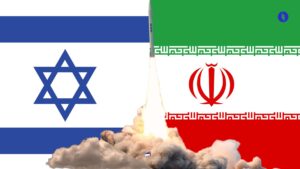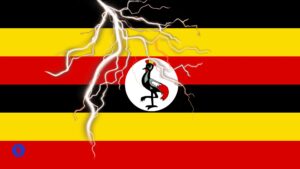Around 8pm on Friday, four armed men entered the Crocus City Hall in Moscow’s outskirts, just as rock band ‘Piknik’ was set to take the stage. The attackers then used automatic weapons and knives to kill dozens of concertgoers, plus incendiary devices to set a mass fire that killed dozens more.
Russian authorities say some 140 people have now died, with another 60 still in serious condition.
Who did it?
Stay on top of your world from inside your inbox.
Subscribe for free today and receive way much more insights.
Trusted by 129,000+ subscribers
No spam. No noise. Unsubscribe any time.
ISIS-Khorasan (ISIS-K) claimed [Arabic]responsibility on the night of the attack, then repeated its claim on Saturday with evidence: graphic bodycam footage.
ISIS-K is an ISIS offshoot based in Afghanistan, seeking a caliphate in ‘Khorasan‘ – that’s the Persian name for an old region covering parts of Iran, Turkmenistan, and Afghanistan, plus (for some) Pakistan, Tajikistan, and Uzbekistan.
The four shooters (plus several accomplices) were reportedly seized on Saturday, and local outlets are naming them as Dalerjon Mirzoev, Saidakrom Rachabalizoda, Shamsiddin Fariduni, and Muhammadsobir Fayzov. They’re thought to be mostly Tajik, though Tajikistan (which has long struggled with Islamist movements) says there’s been no confirmation.
So why would ISIS-K attack Russia?
The first brief ISIS-K statement cast the victims as “Christians”, in an attempted religious framing that it then reiterated on Saturday, when ISIS-K added it was all part of “the raging war between the Islamic State and countries fighting Islam”:
ISIS and its affiliates have long held Russia responsible for the deaths of Muslims in Afghanistan, Syria, Chechnya and beyond. Their main grievance now is around Putin’s 2015 military intervention in Syria and his later declaration of victory over ISIS, in an alliance that’s left hundreds of thousands of civilians dead.
In response, ISIS and its affiliates have since declared a governorate in Russia’s north Caucasus, downed a Russian airliner in 2015, hit Russia’s embassy in Kabul in 2022, and were reportedly foiled in Russia’s city of Kaluga last year, plus the Ingushetia republic and Moscow earlier this month.
In addition to the claims of revenge and religious motivation, these kinds of attacks also aim to establish ISIS as a leader among global jihadi movements, helping to drive recruitment and fundraising while inspiring lone-wolf attacks.
Of course, regular readers will recall the US Embassy in Moscow actually issued a warning about “imminent plans to target large gatherings in Moscow” two weeks ago, in line with Washington’s ‘duty to warn’ principle.
But just last week, President Putin dismissed the US warning as an attempt “to intimidate and destabilise our society“. And in his post-attack address to the nation on Saturday, he made no mention of ISIS, instead seeking to cast blame on Ukraine with allegations that:
- The terrorists were “heading towards Ukraine” when they were caught
- Someone in Ukraine prepared a “window” for them to escape, and
- The attackers were like the “Nazis” who “once carried out massacres in the occupied territories” (a Putinist justification for invading Ukraine).
For its part, the US has (along with much of the West and beyond) unequivocally condemned the attack and expressed condolences for the victims. It’s also rejected, together with Ukraine and others, unsubstantiated allegations that anyone beyond ISIS was behind this attack.
As for Putin? He’s vowing revenge.
INTRIGUE’S TAKE
So what does all this mean for Putin?
In theory, an attack like this could dent Putin’s image as national guardian and undermine his current narrative of strength, whether on the battlefield in Ukraine or at the voting booths back in Russia.
In theory, it could highlight incompetence among Russia’s security services, plus the opportunity cost involved in Putin’s decision to focus them on his invasion abroad and his critics at home (Navalny was convicted of ‘terrorism’).
In theory, it could also dent Putin’s narrative of leading a global movement (particularly among the developing world) to push back on US dominance.
But in reality, Putin will do this time what he did after past setbacks, whether it was the 2023 Wagner mutiny, the 2004 Beslan school siege, or others: he’ll seek to use the event to bolster his own power and objectives.
And for now, that means channelling national outrage and grief into a ‘rally-around-the-flag’, to gird his power as well as public support for his invasion.
Also worth noting:
- The Crocus City Hall is located in the Moscow suburb of Krasnogorsk. Opened in 2009, it’s a high-end entertainment and commercial complex that’s hosted major international acts like Eric Clapton.
- ISIS-K also claimed responsibility for suicide bombings in Iran in January, leaving at least 94 people dead.








